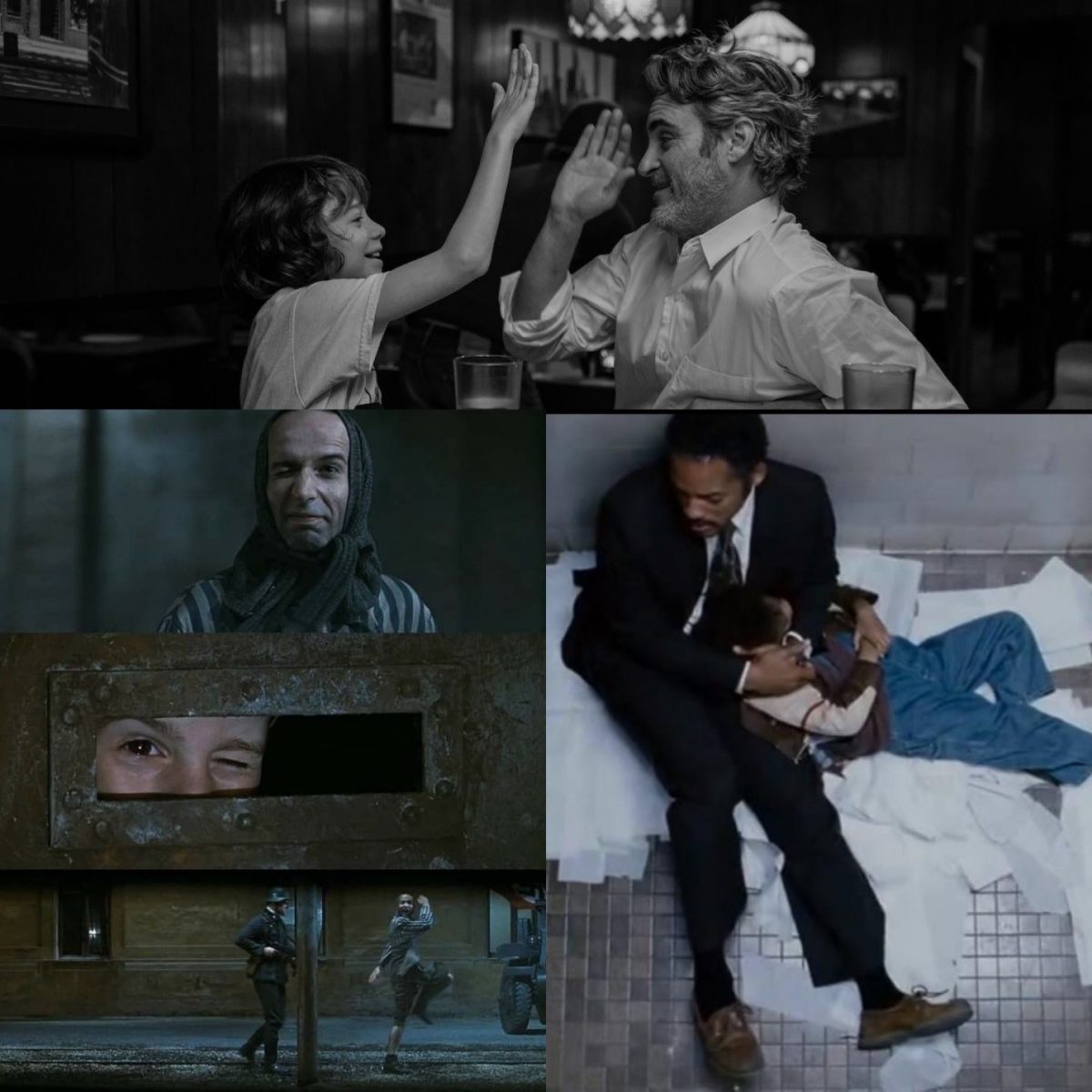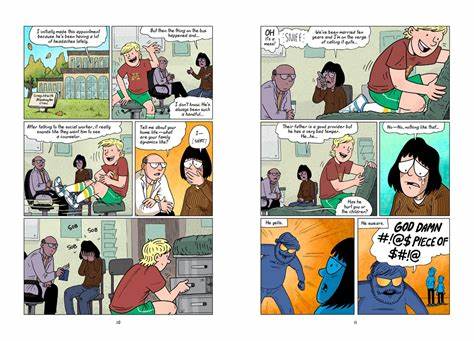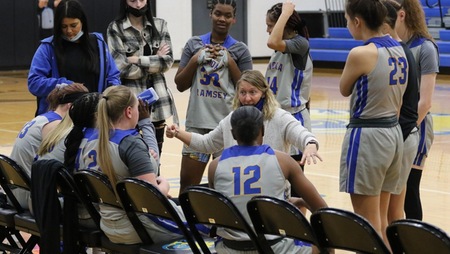As I discussed in “Fathers on Screen: Part One,” fatherlessness is a crisis in America that has been proven statistically and affected by media portrayals. This is an issue that needs to be solved at a personal level because it is up to men individually to make the choice to be both responsible and emotionally open, even throughout the trials and tribulations of life. I have personally wrestled with thoughts of whether I am capable of being a good father one day, which prevented me from sharing openly about my desire to have a family and admit to myself how important it is to me for a long time. I feared by being open I would risk exposing all my inadequacies and where I was falling short in my personal life.
Movies helped me with this. That may sound strange or trite to some but watching films that portrayed flawed men becoming good fathers and role models sparked an inner dialogue within me that resulted in healthier self-talk and gave me clarity into what it means to be a good man and father. The list of movies that have impacted me in this area is extensive but three stand out for their relatability, dynamic situations, and poignant moments.

“The Pursuit of Happyness” is an extraordinary film based on the true story of Chris Gardener and it speaks to the power of men choosing to show up for their kid despite not having a present father themselves. I found Chris relatable because the movie wasn’t afraid to show his frustration and anger when responding to the barrage of unfortunate events and inconveniences thrown his way. The movie speaks to a specific relationship dynamic when Chris tells his wife that he is going to apply to be a stockbroker and she responds by saying, “not an astronaut,” revealing the frustration she is feeling for him considering a lofty and seemingly unrealistic goal when they are currently facing eviction and drowning in debt.
This reveals a common experience people face when the people closest to them begin to criticize their goals out of their own discomfort as soon as they begin pursuing a better career and personal growth. Chris received discouragement after discouragement and instead of taking it out on his son Christopher, when beginning to tell him that he shouldn’t put too much attention into basketball and choose something more reasonable, he transformed his experiences into a lesson for his son, saying, “don’t ever let anybody tell you you can’t do something. Not even me.” The words, “if you want something, go and get it” give me chills as this vivid scene is playing in my head because it speaks to the desperate need for encouragement in young men that so often goes unnoticed.
The moment that moved me the most takes place in a bus station where Chris and Christopher are sitting on a bench after becoming recently homeless. Chris sells medical scanners and when his son asks why a mentally ill man called it a Time Machine previously, he chooses to pretend that it is and prompts Christopher to close his eyes and make believe that they both were transported to the past where there’s dinosaurs. He says that they need to find shelter in the nearest cave and the camera pans to Christopher asleep in the arms of Chris whose back is against the locked bathroom door where security is pounding to get in. The inspiration here comes from the responsibility of a father to not only provide for their children but to support them in extremely tough times, shielding their innocence and wonder so that they have the confidence to dream.

“Life is Beautiful” is about a father named Guido who convinces his son while being taken and held in a concentration camp that everything going on around them is a game. Without spoiling it, the captivating last minutes of the film display a father’s willingness to put his son first selflessly, even when within the darkest moments of his life. Life is extremely difficult, and the way fatherhood is showcased in this film shows the sense of purpose it can instill in a man who accepts responsibility and refuses to give up.
Along with his displays of remarkable courage, Guido’s character was relatable because he is introduced to the audience as a comical man who is willing to embarrass himself in order to impress a woman he’s interested in. He is shown as a lovable and good-hearted man fumbling through life to the best of his ability. This was refreshing for me because it is a healthy example of masculinity and fatherhood being embodied by a character that isn’t the usual hyper-attractive, muscular, and stoic man seen in action films. The title itself speaks to the father’s inner drive to work as hard as he could to make his child believe that “life is beautiful” despite tragedy and suffering and hold onto this belief himself.

“C’mon C’mon” is unique as it portrays an uncle imperfectly filling a father-figure role in his nephew’s life when his mother goes away briefly to help his biological dad with his bipolar disorder. Joaquin Phoenix’s character, Johnny, is relatable because his weaknesses quickly bubble to the surface when looking after his nephew Jesse. He is a middle-aged man who is working on a journalism project that involves interviewing kids about the world, an exciting creative endeavor that takes up a lot of his time. With all his free time and space being filled with Jesse’s endless energy and eccentricities, he makes a call to his mother midway through the film to express how hard parenting is and how much he admires her for how she deals with the stressors of motherhood with grace. Alongside the irritation, anger, and fear that can be observed in Johnny, a greater sense of joy and depth of character emerges. Jesse is curious and asks him questions about what it means to be normal and why Johnny is single, prompting reflection and connection between them.
As the film progresses and it’s time for Jesse to go home, he runs off and shuts down. Johnny helps him get his anger out by saying it’s not only okay for him to yell and admit that he’s not doing okay but that it’s reasonable for him to feel this way. This moment is so touching because it acknowledges that young men feel emotions just as intensely as everyone else. The statistics make it clear that when men hide their emotions and can’t process them in a healthy way, they are driven to make bad decisions and fall into various problems mentally and physically. With all of Johnny’s weaknesses being exposed throughout the film, he shows up for his nephew here and creates space for him to express himself. Jesse yells that he’s fine and he yells back, “yeah well I’m not fine” and “this is fucked up and that makes sense” until they both are shouting angrily and then comically.
Culture is now placing a higher emphasis on the importance of mental health but there’s a long way to go. By focusing on a unique circumstance and an uncle-nephew bond, it paints a vision for men to not wait until their fathers to pursue responsibility and emotional health but to be there for the people in their lives. Personally, with my dream of being a father, there have been times where I fixated on the future and ignored my present circumstances.
I have three nephews and realized through this film that I will always be their uncle, but it is up to me to fulfill that role in meaningful way by showing up for them. All three films changed my perspective about the importance of taking care of myself and accepting my weaknesses and failures so that I can pursue becoming the best man and father I can be. There is an opportunity for all men who have experienced discouragement, the death of personal dreams, insecurity, depression, and more to show up for the friends and family in their lives and seek out opportunities to help more young men suffering silently like they once did.







